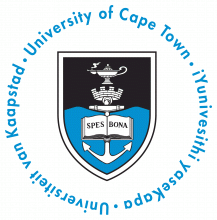Research collaborations need to be recalibrated to make sure knowledge from Africa takes its “rightful place”, it has been argued.
Isabella Aboderin, Perivoli chair in Africa research and partnerships at the University of Bristol, told the Reinventing Higher Education conference at the University of Cape Town (UCT) that many scholarly collaborations were conceived and driven by those in the Global North.
“I would propose that they have sidestepped from, and at worst been a distraction from, a much more fundamental change that is required in global African research relations,” she said.
Professor Aboderin is director of the Perivoli Africa Research Centre (Parc), which is developing an Africa-centred research collaboration charter, to be launched later this year.
Divine Fuh, director of the Institute for Humanities in Africa at UCT, which is working alongside Bristol on the charter, likened the problem to a virus.
“The global scientific ecosystem has been hit by a virus – inequality in the knowledge production system is a disease if we don’t manage it, and it has become a pandemic,” Dr Fuh said at the conference, which was held in association with IE University.
“It’s a pandemic we are trying to deal with right now.”
Professor Aboderin said taking an African-centred view meant starting from the disadvantaged position of African scholars and institutions.
“It is imperative to rebalance the system as a whole – to make sure that knowledge from the continent takes its rightful place in scientific knowledge production, not just for the continent but also for the world itself,” she said.
With the vast majority of African research collaborations coming from partnerships with the Global North, they had the potential to be “transformative” for the system as a whole, she told delegates.
“Equitable partnerships speak about division of labour, joint agenda-setting, control of budgets and so on.
“These are important points for sure, but they are symptoms of much more fundamental multilayered power imbalances that make up an uneven playing field that leads scientific knowledge today.”
The charter is currently being created with the support of many of the major research and higher education stakeholders in Africa, with an initial framework to be launched in June.
Professor Aboderin told Times Higher Education there had been a long history of scholarship pointing to these issues but now perhaps the “moment is right”.
One of the key ideas of the framework was that the directions for change “need to have teeth” and change institutional policy at a structural level, she added.
“That means that even when certain individuals have gone you are playing the game by a different set of rules.”
Evelyn Welch, vice-chancellor of the University of Bristol, said her institution was focused on going back to basics to create a “genuine equitable partnership when resources and histories are so very unevenly distributed”.
She said UCT and Bristol had a “shared sense of responsibility” for their respective pasts and an awareness of the benefits that came from true collaboration and true cooperation.
Register to continue
Why register?
- Registration is free and only takes a moment
- Once registered, you can read 3 articles a month
- Sign up for our newsletter
Subscribe
Or subscribe for unlimited access to:
- Unlimited access to news, views, insights & reviews
- Digital editions
- Digital access to THE’s university and college rankings analysis
Already registered or a current subscriber? Login












